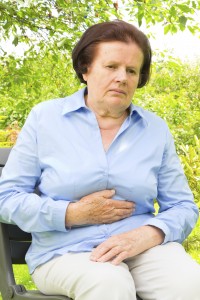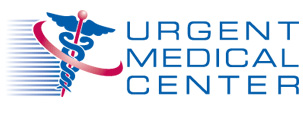
How The Digestive System Works
When your body is experiencing healthy, normal functions it has a very sophisticated system for digesting food, allowing you to enjoy a varied diet without much repercussion.
Food travels from your mouth, down your esophagus and into your stomach at a relatively quick pace so that it can find its way to the intestines where digestion takes place. Nerves, bacteria, hormones, blood, and the hard organs of your digestive system all work together as a team to digest foods and liquids.
You may start to feel sick if there’s a hitch in the system and your body can’t properly break down food for some reason. Since your digestive system is a long and complex system, starting from your mouth and ending at your anus, there are many things that can go wrong along the way. If you regularly experience symptoms of feeling sick after eating you should consult with a doctor to ensure everything is okay.
8 Common Causes Of Nausea And Illness After Eating
The following list represents only 8 of the many potential reasons you may be experiencing nausea or sickness after eating.
1. Stomach Producing Excess Acid
Gastritis, or excess stomach acid, can result in nausea that may or may not include stomach pain. If taking an antacid medication makes you feel better your issue might be related to an over production of acid in your stomach. The stomach produces too much acid for a few reasons, including anxiety or a chronic bacterial infection. Most causes are treatable and not usually serious. But if issues involving excess production of stomach acid are not resolved, larger issues can arise, such as the development of a frank ulcer.
2. Food Allergies
There are a number of food allergies you could be suffering from such as a wheat, gluten, or lactose intolerance. Food allergies can manifest randomly, or go undiagnosed for years, meaning you could have a food allergy even if you think you don’t. By consuming foods you are allergic to you are bound to feel sick. Keeping a food journal and logging how you feel after each meal is a great way to uncover culprit foods.
3. Peptic Ulcer
A common type of ulcer that leads to stomach pain after eating is a peptic ulcer, typically caused by bacterium Helicobacter pylori invasion, or from taking painkillers over an extended period of time. Signs of a peptic ulcer include a painful burning near the epigastric region when you are hungry, and nausea when you are full. There are other types of ulcers that can form in your digestive track as well, and when these ulcers are present the process of digesting food can be very painful.
4. Stress
Stress and anxiety are not just ‘emotions.’ The way that we feel actually impacts our physical wellbeing. The mood you are experiencing while consuming a meal will translate to how well you digest the meal. If you are feeling anxious, overly excited, or stressed while eating you can easily experience an upset stomach afterwards.
5. Consuming Infrequent Meals
If you don’t eat enough and stretch long periods of time between each meal you risk feeling sick when you do eat. If it’s been a long time since your last meal, make sure and eat slowly to reduce your chances of feeling sick afterwards. You should also make a conscious effort to eat smaller snacks all day as opposed to one meal here and there.
6. Appendicitis
If you are suddenly feeling nauseous after eating it might have to do with appendicitis. Visit a doctor right away if the pain is centered near the lower right portion of your stomach. An appendicitis can lead to a ruptured appendix within 24-hours if it is left untreated.
7. Gallstones
If you notice the pain near the upper portion of your stomach, and the pain is especially bad after consuming fried foods, the cause might be gallstones.
8. Stomach Cancer
Before you hit the panic button, stomach or gastric cancer is the most severe cause of stomach pain after eating. If cancer is the culprit you will likely experience other symptoms as well, such as weight loss and bloody stools.
Visit Urgent Medical Center today for the knowledgeable, compassionate care you need to start enjoying food again.




